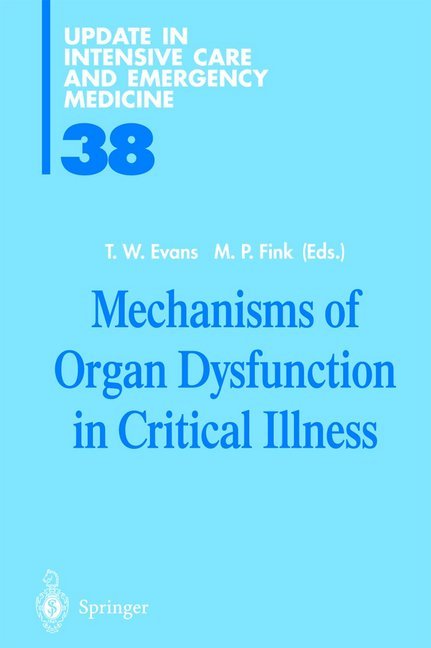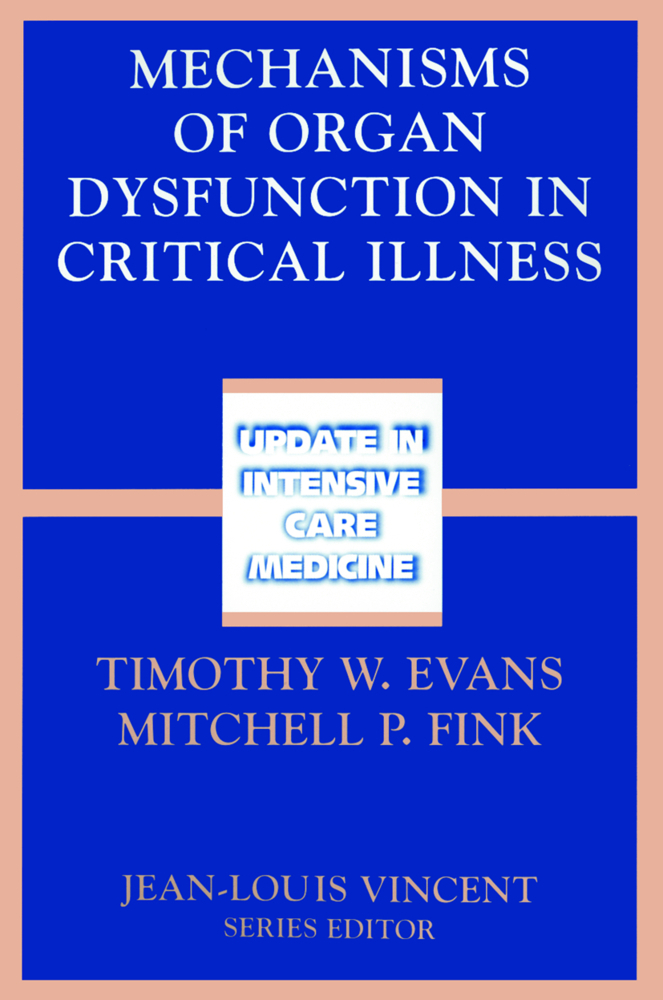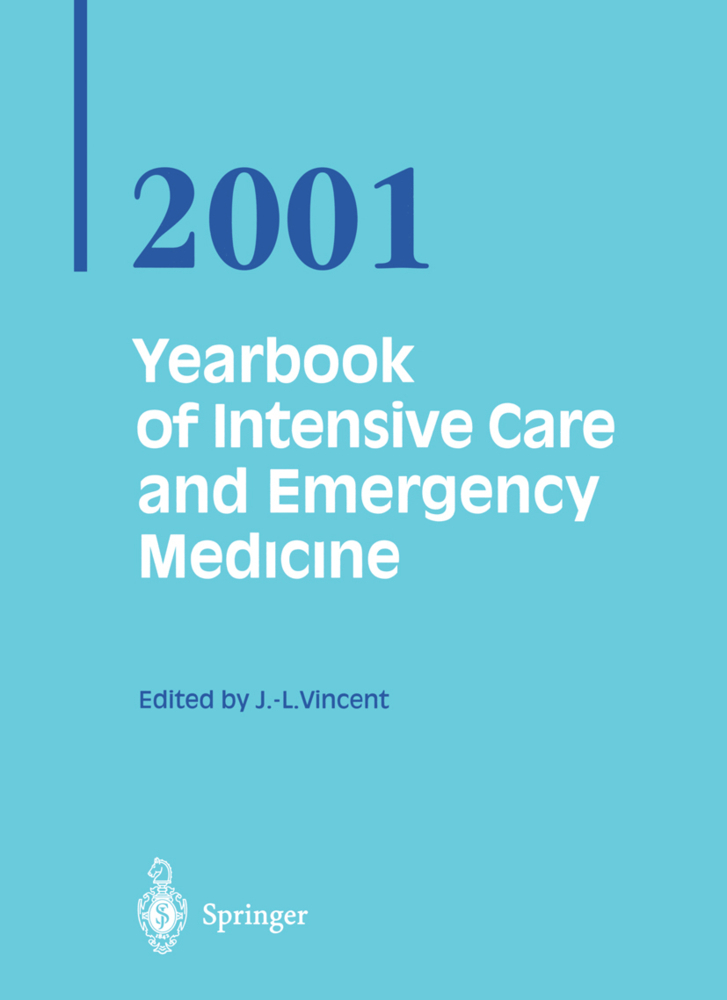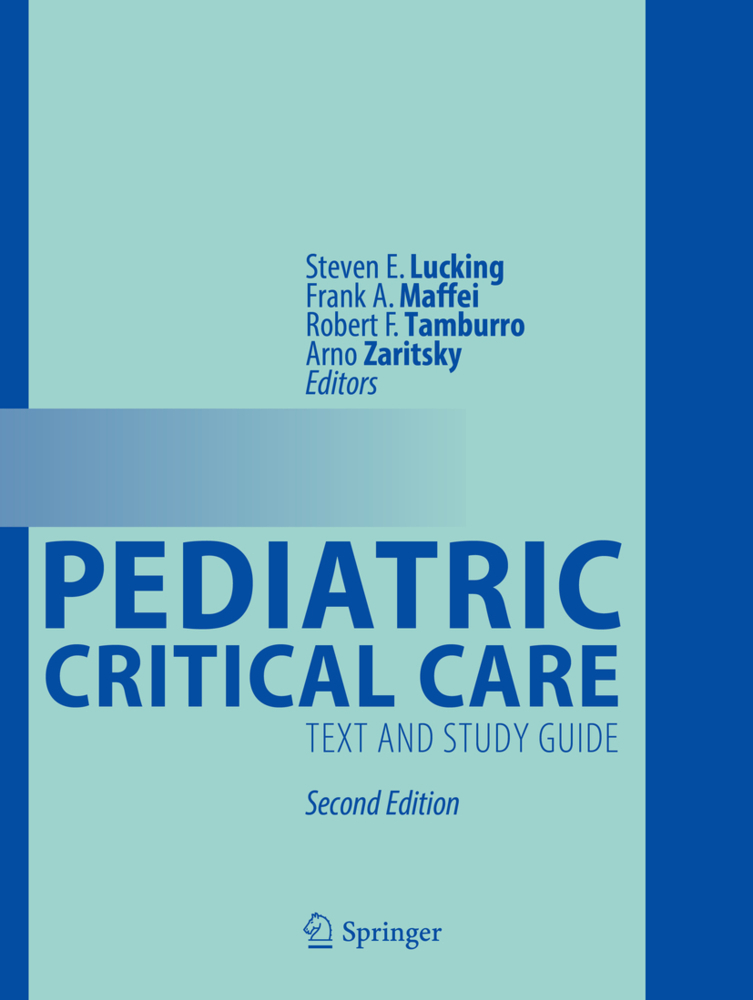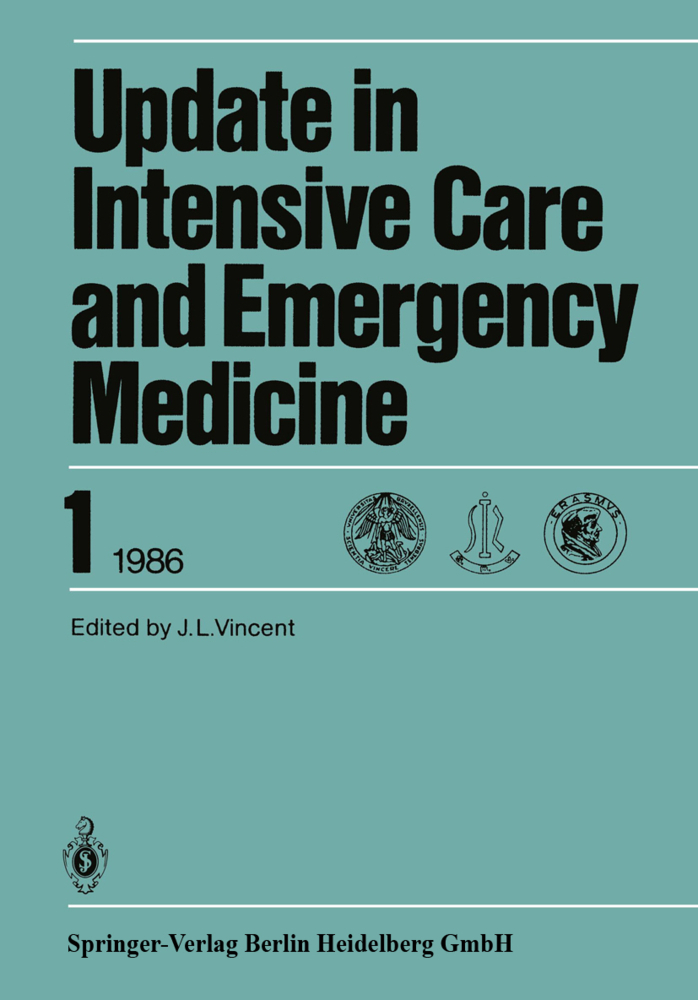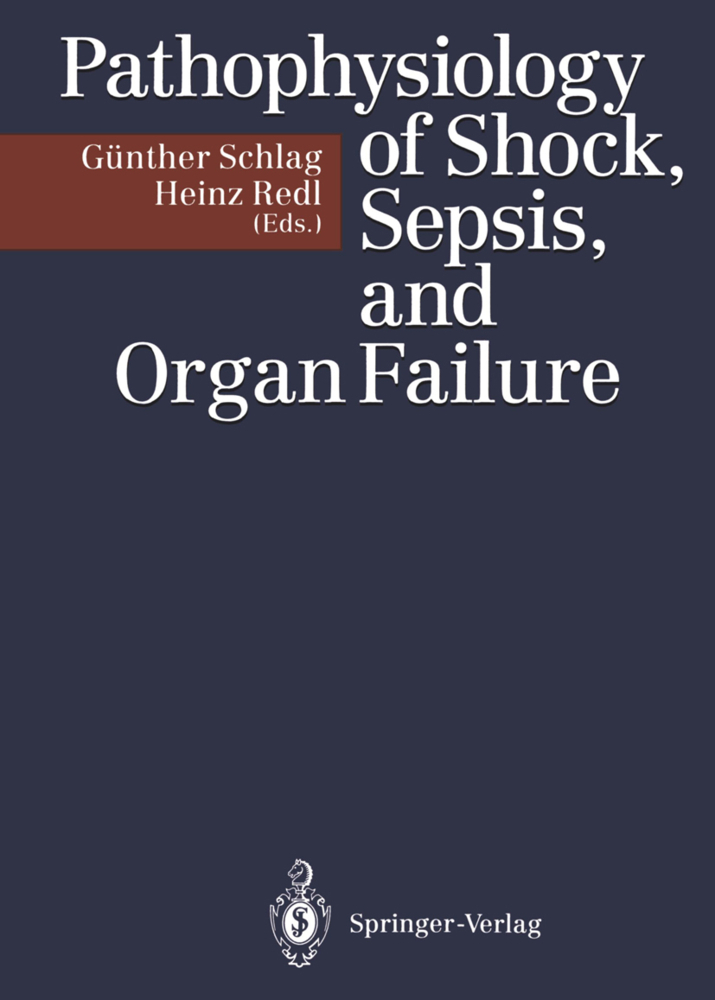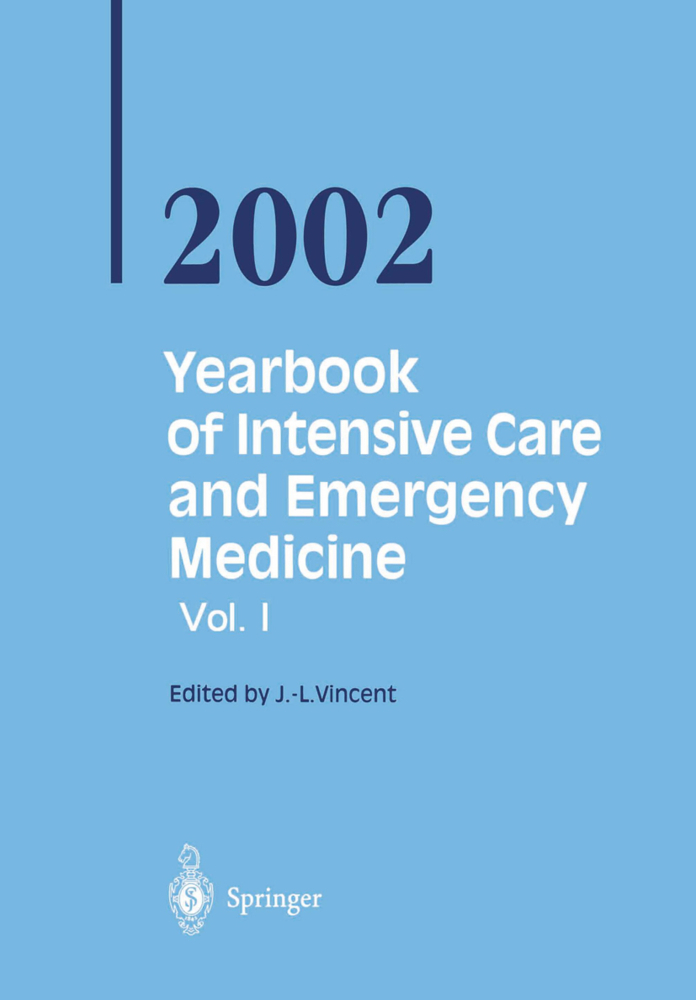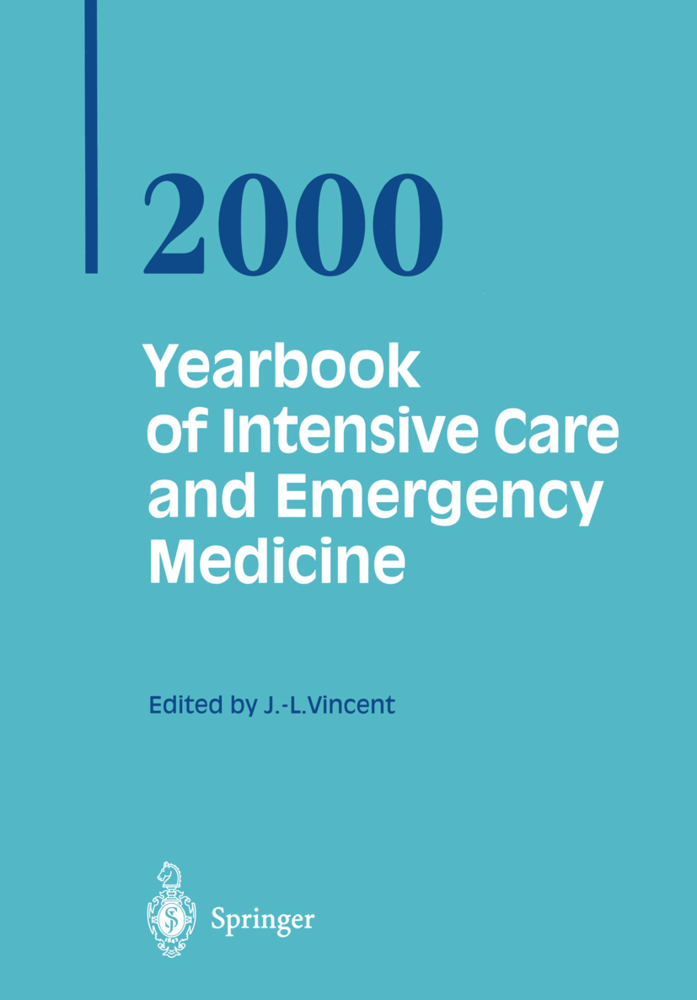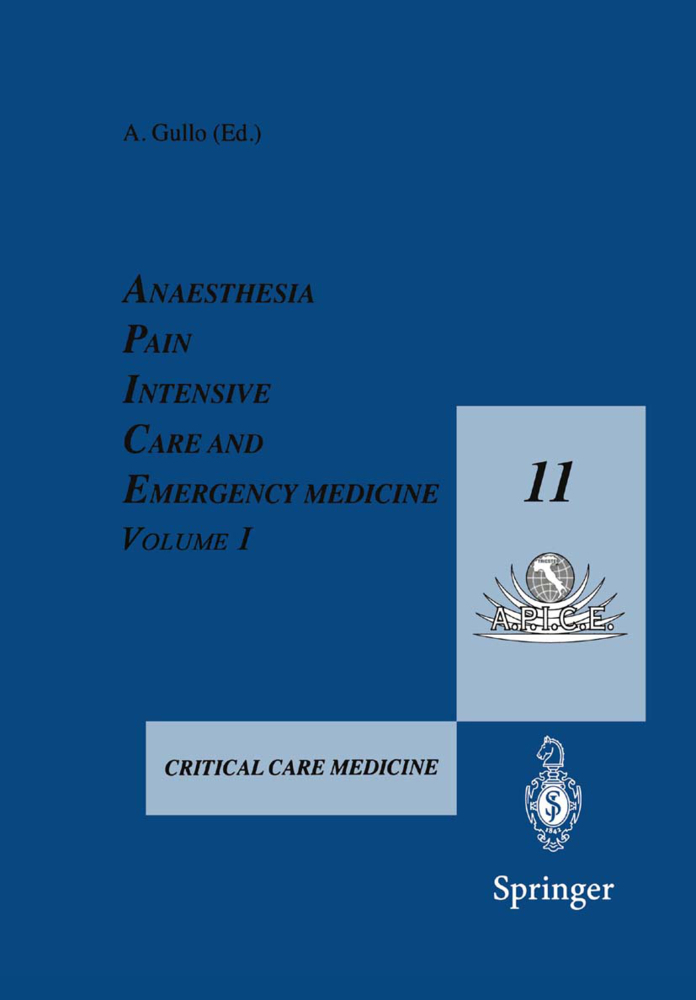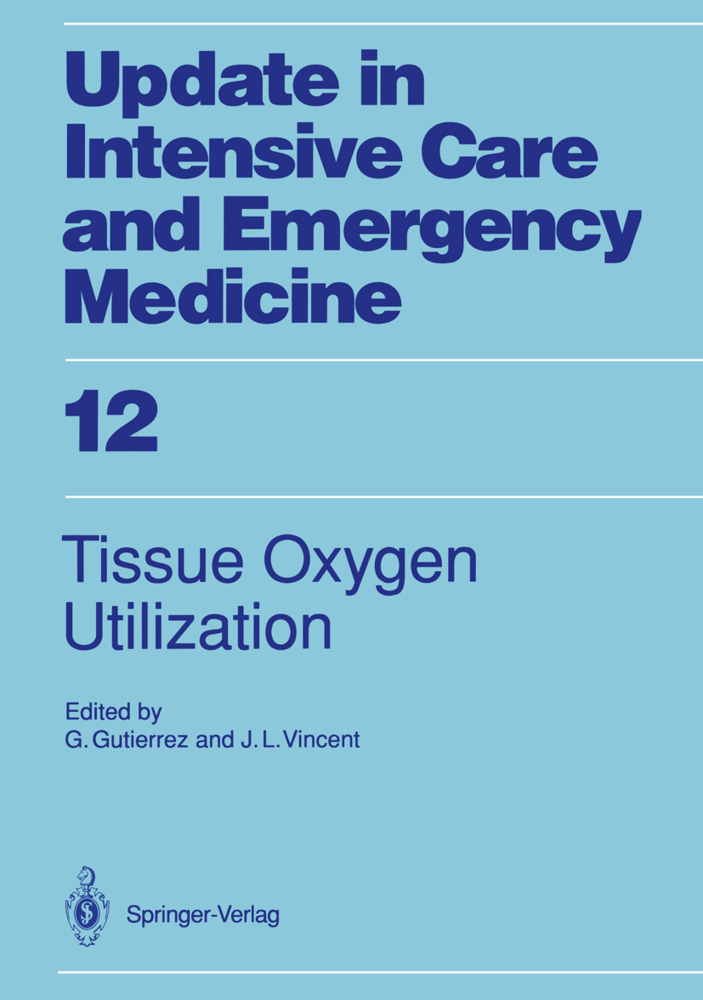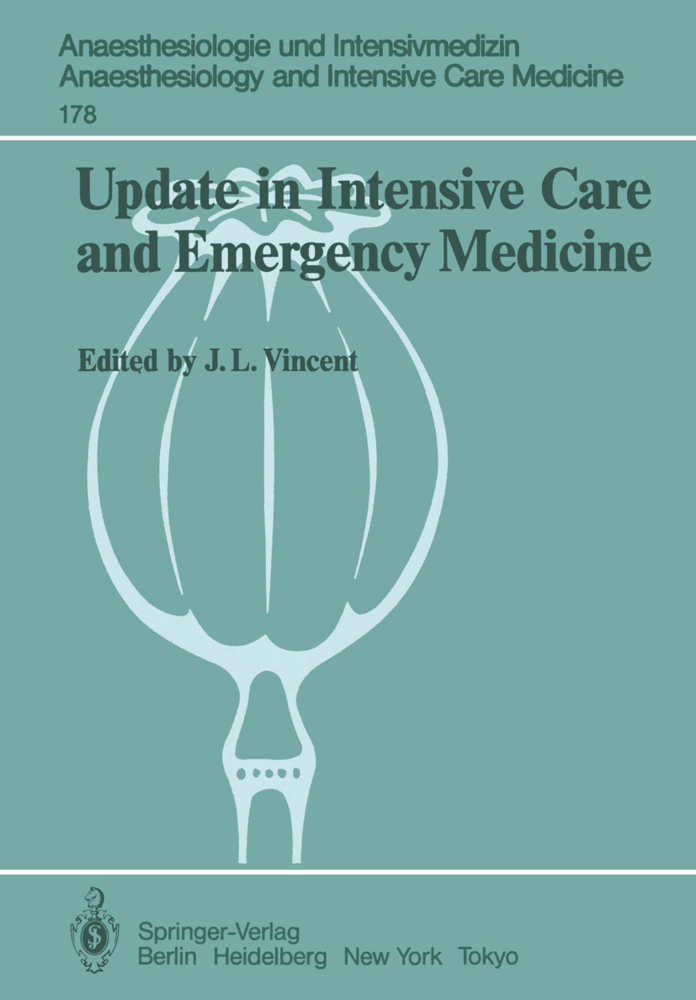Mechanisms of Organ Dysfunction in Critical Illness
Mechanisms of Organ Dysfunction in Critical Illness
The pathophysiology of sepsis can be regarded as a series of steps, beginning with the invasion of normally sterile tissue by microbes and the elaboration of various pro-inflammatory mediators. The final common pathway is often the development of the multiple organ dysfunction syndrome (MODS). Whereas a great deal has been learned during the past quarter century about the inflammatory processes associated with sepsis (and other related conditions, such as ischemia/reperfusion injury), our understanding is far less developed with respect to the pathophysiological events that lead to organ dysfunction under these conditions. Nevertheless, efforts by both clinical and laboratory scientists are leading to new knowledge in this area. The chapters in this volume provide a state-of-the-art overview of many aspects of the pathophysiology of organ dysfunction in critical illness.
The Mitochondrial Permeability Transition: A 'Pore 'Way to Die
Cytopathic Hypoxia in Circulatory Shock: The Role of Poly (ADP-Ribose) Synthetase Activation
Derangements in Cellular Oxygen Metabolism
Pharmacologic and Metabolic Mitochondrial Rescue
Leukocytes and Cell Signaling Mechanisms in Inflammation
Role of Leukocytes in Sepsis and Lung Injury
Dysregulated Neutrophil Apoptosis in the Pathogenesis of Organ Injury in Critical Illness
Does Apoptosis Play a Role in the Development of Sepsis-Induced Myocardial Dysfunction?
The Intracellular Signaling Pathways of Inflammatory Stress
Pro-Inflammatory Cytokines: Double-Edged Swords in the Pathogenesis of Bacterial Infection
Organ-Organ Interactions in Multiple Organ Failure
Microcirculatory Dysfunction
Endothelial Cell Dysfunction and Abnormal Tissue Perfusion
The Microcirculation in Sepsis
Lung and Kidney
Pulmonary Vascular Dysfunction
Pulmonary Epithelial Injury: Clinical and Experimental Evidence for a Major Role in Acute Lung Injury and Multiple Organ Dysfunction
Ischemia-Induced Derangements in the Actin Cytoskeleton: Mechanisms and Functional Significance
Multiple Organ Failure and the Kidney
Apoptosis in Renal Ischemia-Reperfusion Injury
Gastrointestinal Tract
Local Muscularis Inflammatory Mechanisms of Ileus
Mechanisms Responsible for Intestinal Barrier Dysfunction in Critical Illness
Liver Dysfunction: Nitric Oxide, Carbon Monoxide, and Reactive Oxygen Species
Brain Injury
Polyamine Oxidase and 3-Aminopropanal in the Pathogenesis of Cerebral Ischemia
Key Mechanisms of Secondary Neuronal Damage After Brain Trauma
Cerebral Ischemia: Pathophysiology andNeuroprotection
Organ Dysfunction: Detection and Intervention
Redistribution of Microvascular Oxygen Pressures in the Pig Intestine in Hemodilution and Sepsis
Influence of Mechanical Ventilation on Organ Dysfunction
Coagulation Abnormalities in Critical Illness
Multiple Organ Failure: Clinical Syndrome.
Mitochondrial Biology
Cellular Responses to Hypoxia: Role of Oxidant Signal TransductionThe Mitochondrial Permeability Transition: A 'Pore 'Way to Die
Cytopathic Hypoxia in Circulatory Shock: The Role of Poly (ADP-Ribose) Synthetase Activation
Derangements in Cellular Oxygen Metabolism
Pharmacologic and Metabolic Mitochondrial Rescue
Leukocytes and Cell Signaling Mechanisms in Inflammation
Role of Leukocytes in Sepsis and Lung Injury
Dysregulated Neutrophil Apoptosis in the Pathogenesis of Organ Injury in Critical Illness
Does Apoptosis Play a Role in the Development of Sepsis-Induced Myocardial Dysfunction?
The Intracellular Signaling Pathways of Inflammatory Stress
Pro-Inflammatory Cytokines: Double-Edged Swords in the Pathogenesis of Bacterial Infection
Organ-Organ Interactions in Multiple Organ Failure
Microcirculatory Dysfunction
Endothelial Cell Dysfunction and Abnormal Tissue Perfusion
The Microcirculation in Sepsis
Lung and Kidney
Pulmonary Vascular Dysfunction
Pulmonary Epithelial Injury: Clinical and Experimental Evidence for a Major Role in Acute Lung Injury and Multiple Organ Dysfunction
Ischemia-Induced Derangements in the Actin Cytoskeleton: Mechanisms and Functional Significance
Multiple Organ Failure and the Kidney
Apoptosis in Renal Ischemia-Reperfusion Injury
Gastrointestinal Tract
Local Muscularis Inflammatory Mechanisms of Ileus
Mechanisms Responsible for Intestinal Barrier Dysfunction in Critical Illness
Liver Dysfunction: Nitric Oxide, Carbon Monoxide, and Reactive Oxygen Species
Brain Injury
Polyamine Oxidase and 3-Aminopropanal in the Pathogenesis of Cerebral Ischemia
Key Mechanisms of Secondary Neuronal Damage After Brain Trauma
Cerebral Ischemia: Pathophysiology andNeuroprotection
Organ Dysfunction: Detection and Intervention
Redistribution of Microvascular Oxygen Pressures in the Pig Intestine in Hemodilution and Sepsis
Influence of Mechanical Ventilation on Organ Dysfunction
Coagulation Abnormalities in Critical Illness
Multiple Organ Failure: Clinical Syndrome.
Evans, Timothy W.
Fink, Mitchell P.
| ISBN | 978-3-540-42193-1 |
|---|---|
| Artikelnummer | 9783540421931 |
| Medientyp | Buch |
| Copyrightjahr | 2002 |
| Verlag | Springer, Berlin |
| Umfang | XVI, 410 Seiten |
| Abbildungen | XVI, 410 p. |
| Sprache | Englisch |

